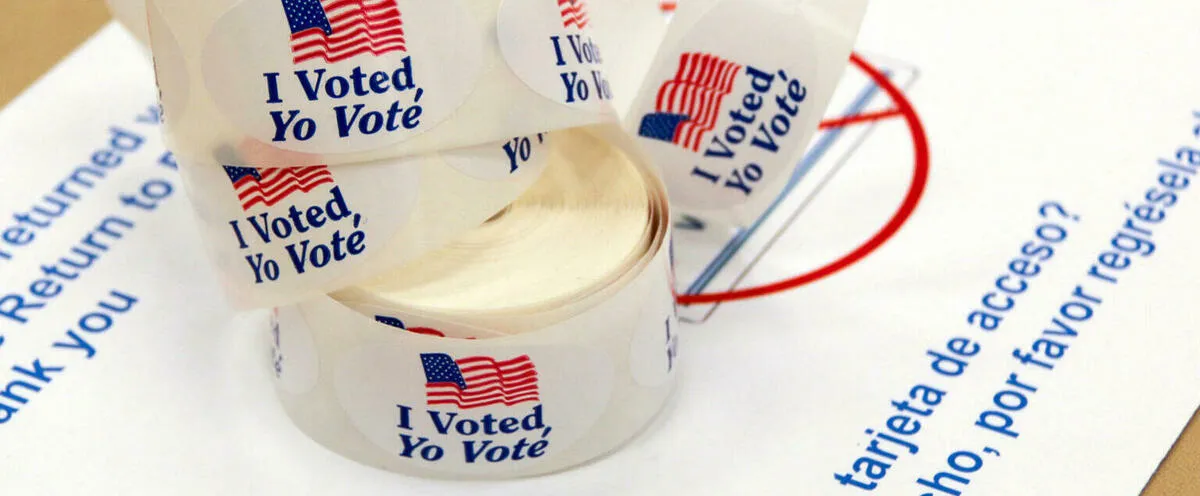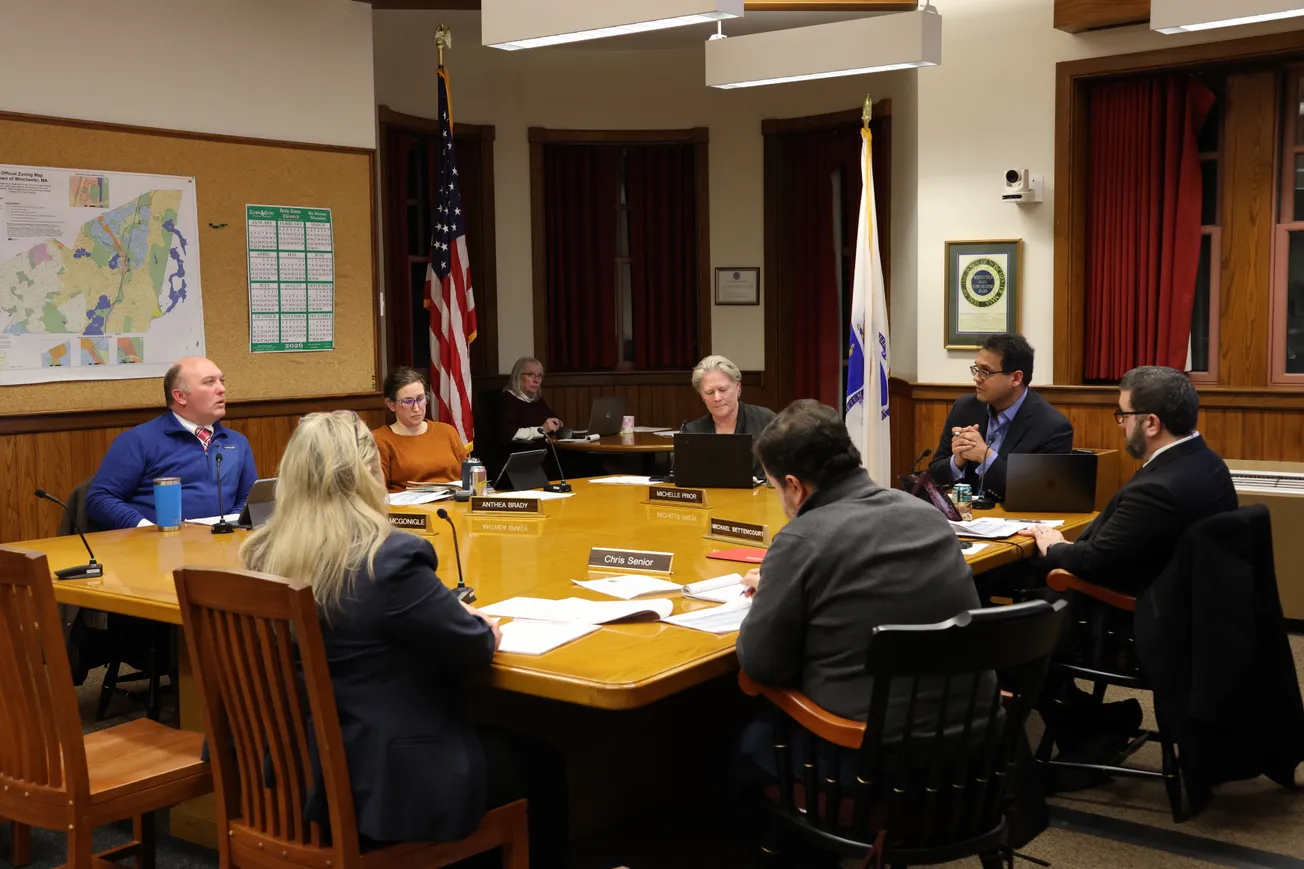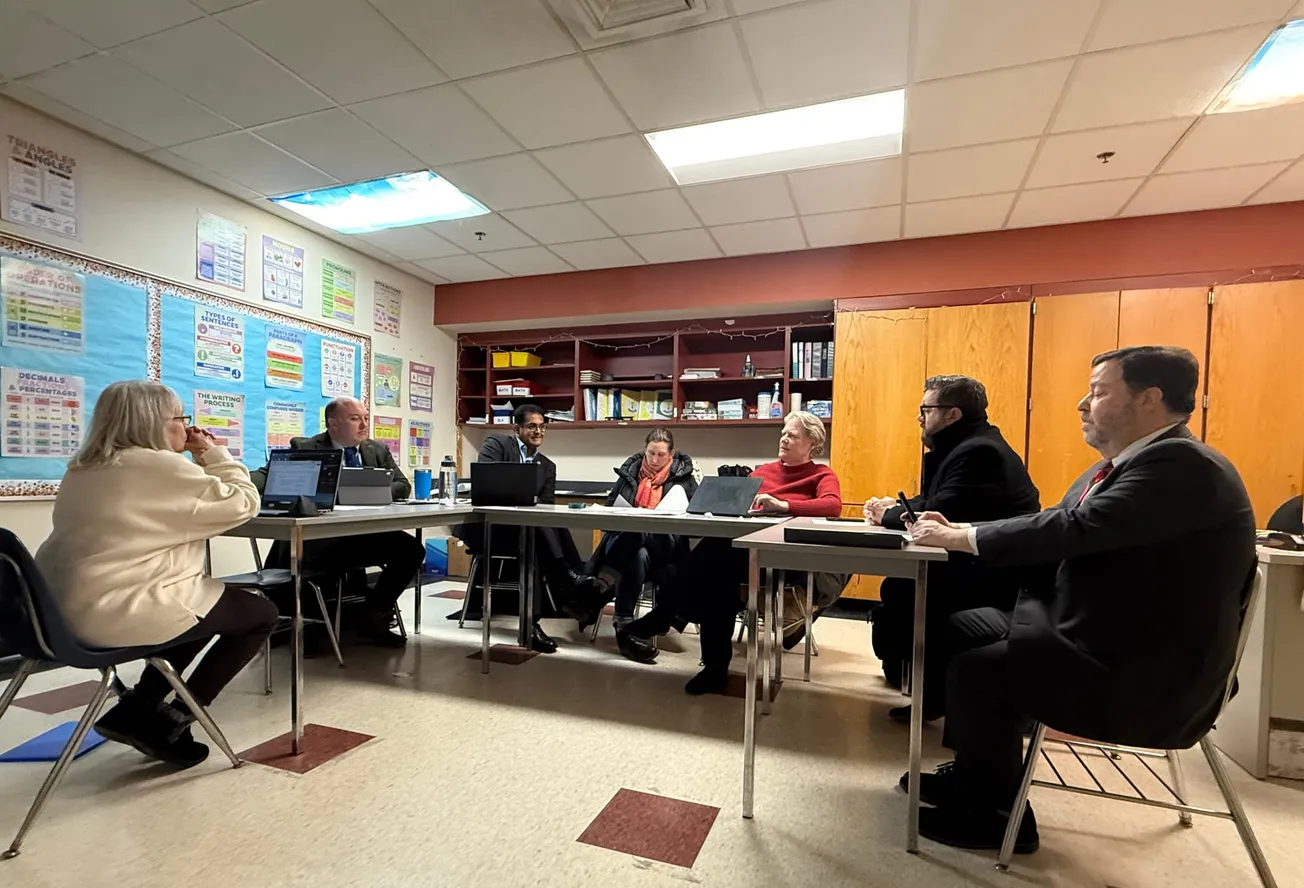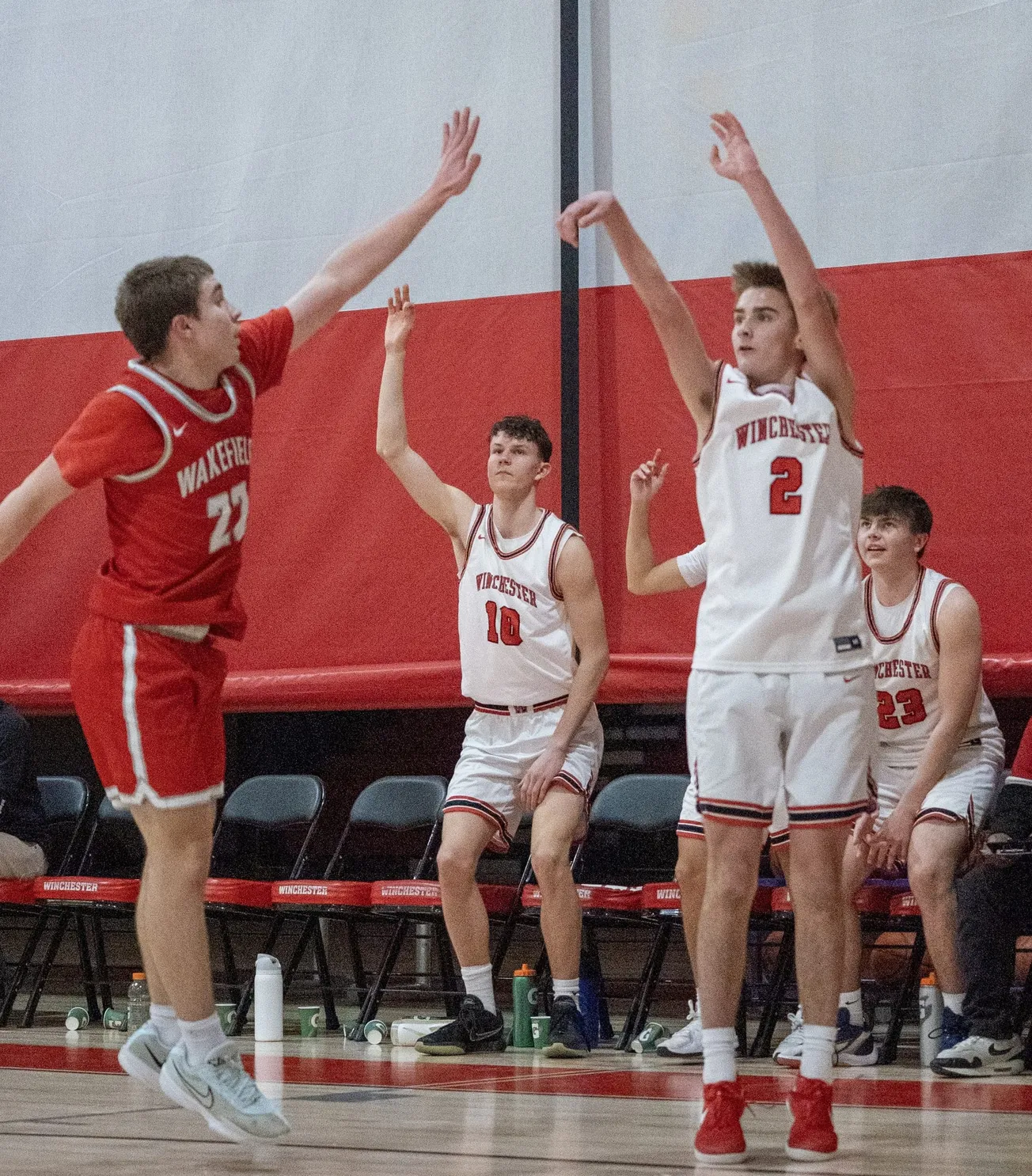Table of Contents
The idea of having it your way when it comes to dinner isn’t new. So why not have the same options when it comes to elections?
Eat in, take out or delivery. Town Clerk MaryEllen Lannon says it’s the same thing when you think about it.
Eat in? It’s Election Day, come on down and cast your vote. Take out? Come down to Town Hall and vote early. Delivery? Well, just check one tiny box on the elections card coming to your mailbox and you can easily vote by mail.
“The whole purpose of elections is to give everyone the opportunity to vote,” Lannon explains, on a Friday morning as workers shuffle voting cards.
With a full-time staff of 4.3, Lannon counts on volunteers such as those in the backroom, who not only staff the polls on Election Day, but come in for early voting and sort cards.
Elections, Lannon says, are ever present. In a presidential election year, she says there are four elections and every two years, there could be up to three elections with the state. And let’s not forget the town elections and all the special elections in the mix.
“They are ever present,” Lannon says, again. “That’s why it’s important to build a team. Volunteers and poll workers are essential to helping get things done.”
Boxes are shuffled through Town Hall into the counting room. Lannon says the cards asking residents if they want to vote by mail are now coming back.
“The cards are in the thousands,” she says. “It’s extremely convenient, but the backroom implications are enormous. It’s quite a volume of work to push on municipalities and it’s not sustainable in a way.”
Lannon has reached out to Sen. Jason Lewis and Rep. Michael Day to discuss the need for additional funding and to change the law so that communities have the extra money to deal with elections.
“I’m in a wealthy community and I’m saying that we need funding,” she says. “Can you imagine how other communities are dealing with it?”
Elections are expensive. Lannon adds that towns need to hire people who can be brought in to work with the professional staff to do the work and do it accurately.
“It is expensive to conduct the elections under the new legislation. The staffing alone to manage the Vote by Mail and Election Day work is approximately $25,000. I would say it’s probably about $25,000 for the state primary and then the general election,” Lannon says. “Staffing is also expensive. You have people working the polls all day so you could be paying $14,000. You need about 60 to 80 poll workers and then there are the police details, which are also expensive.”
Lannon says the state provides reimbursement for staffing for both the Presidential Preference Primary, state primary in September and general election in November. It also provides all printing and programming costs. The communities, however, pay the postage on the outgoing Vote by Mail.
In Lannon’s budget for fiscal year 2024, which includes two elections, there is a need for additional funding for staffing due to the Vote by Mail. She says the costs to conduct an election has “skyrocketed due to the enhancements in the technological space.”
Winchester Town Meeting recently approved a $25,000 appropriation to purchase a new high speed ballot scanning machine, which Lannon will implement on March 5. The state allows for Vote by Mail ballots and early voting ballots to be processed at Town Hall through this new high-speed technology instead of sending them to the polls.
With election check in systems, programming and software licenses, among other things, the cost of running local elections is nearly $40,000.
Voter turn out
While she likes the idea of offering options for voting, it’s difficult to say whether or not these options are increasing voter turnout. For example, Winchester has 16,000 total voters and approximately 14,500 active voters in a community with a population of 23,000 people.
In the last presidential primary election held in March 2020, the voter turnout was 50% while in 2016 it was 58%. State elections are much higher in Winchester with over 80% of residents voting.
For local elections, if there’s a question on the ballot that affects voter taxes, voter turnout can nearly double. With no ballot questions, that number drops to under 20%.
Lannon says when Vote by Mail started four years ago, Secretary of State William Galvin’s office did an analysis of early voting and “it did not yield higher turnout, but it was valued as a positive change to make it easier for voters to participate and have options.”
“I haven’t seen more than a few blips,” Lannon says, of her own personal experience with voting options increasing voter turnout. “I think it’s necessary to keep the younger generation engaged. They’re digital. They’re not reading an email or a newsletter from me.
“We do live in that world where you can go out to eat, sit in, take out or door dash,” she adds. “It gives people lots of options.”
Winchester News is supported by our community. Please donate to support our work.







